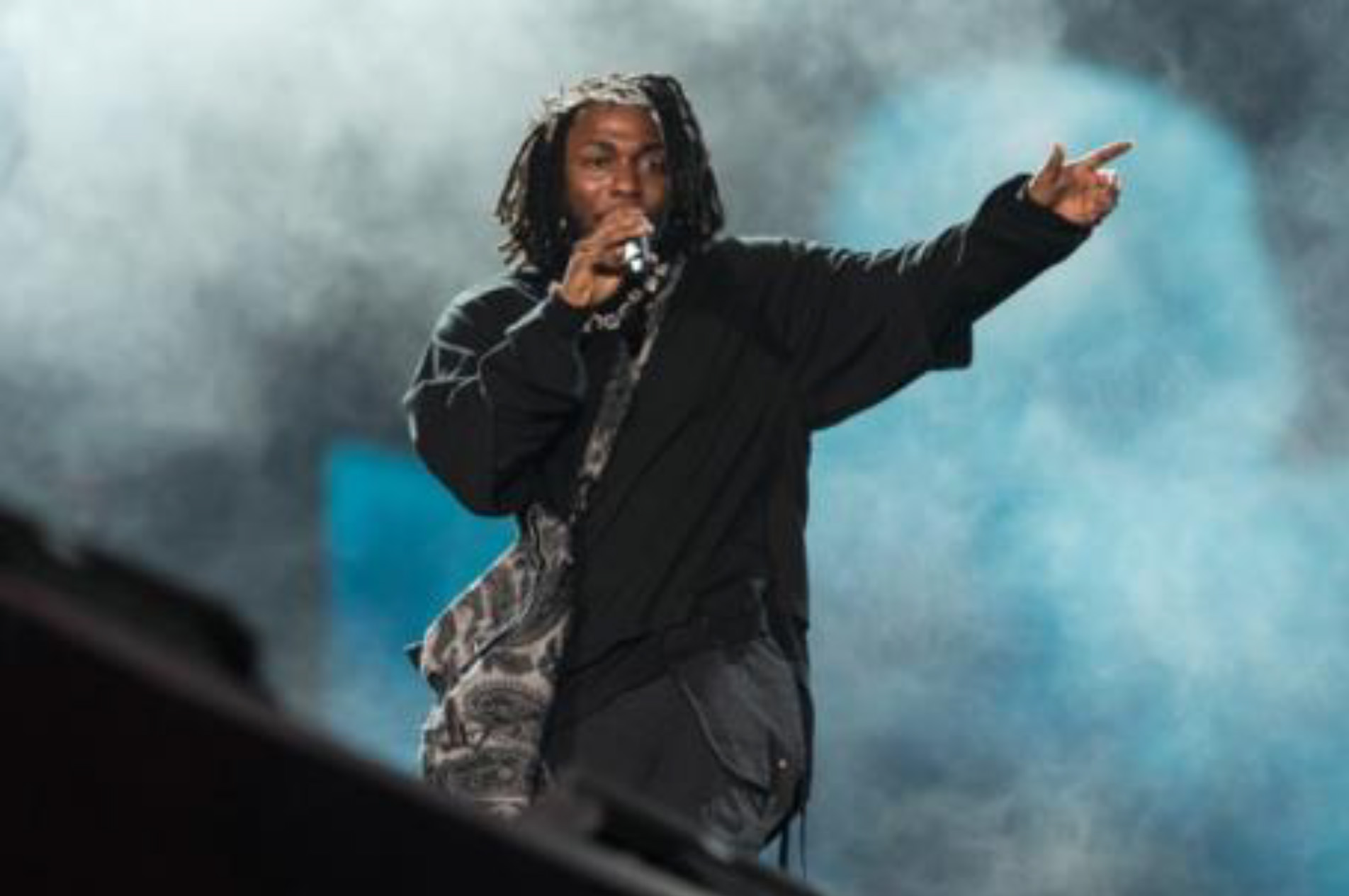Endings matter. While a good start is half the battle, nothing beats a ‘mic-drop’ finish. The American rapper and songwriter, Kendrick Lamar, brought his headlining performance at the Glastonbury Festival in June, 2022 to a dramatic climax which put the crucifixion of Jesus front and centre across the entertainment world. Lamar concluded his last song ‘Savior’ at the festival by repeating the phrase ‘Godspeed for women’s rights. They judge you, they judge Christ!’ He could be accused of politicising religion or even reducing it to mere entertainment. However, his performance had a serious intention that exhibits both his commitment to his faith and to social justice.
Writing about the experience of being black in America, the Womanist and Black Catholic theologian, M. Shawn Copeland, maintains that ‘incarnate spirit refuses to be bound.’ By this she means that the human being is a spirit enthroned in a body that experiences and lives a life. For Copeland, if you are a black person living in America, your experience as an ‘incarnate spirit’ is a very different one to that of a white person’s. Many black people struggle to live a life fit for their spirit as they resist and refuse to be bound by the prejudice perceptions of their world. And yet many live lives that acknowledge the existence of God even in a racist materialist society. The songs of Kendrick Lamar reflect many such experiences.
Lamar’s work is fused with both spiritual and social justice questions, and it has earned him numerous awards. In 2018, he won the Pulitzer Prize for his album Damn. The LP, which won Best Rap Album at the Grammy Awards the same year, was the first non-jazz or classical work to ever win a Pulitzer Prize. Lamar, born and raised in California, was deeply humbled by the award and, yet, at the same time, felt it was long overdue for the hip-hop genre. ‘It took a long time for people to embrace us – people outside of our community, our culture – to see this not just as vocal lyrics, but to see that this is really pain, this is really hurt, this is really true stories of our lives.’ Damn, which has remained in the Billboard 200 Album Charts for the past four years, was described by the Pulitzer Board as ‘a virtuosic song collection unified by its vernacular authenticity and rhythmic dynamism that offers affecting vignettes capturing the complexity of modern African-American life.’ He is a gifted storyteller who manages to creatively and strikingly convey his experiences of what it was like to grow up as a black American.
Street Scripture
Lamar raps, like a modern day prophet, about his fractured and faithful relationship with God in fresh and honest ways. For example, in his song ‘Faith’ he writes about his mind drifting while at church which leads him back to question God about his life.
I found myself losing focus at a Sunday service
Embarrassed so I start questioning God, ‘What is my purpose?’
He said to live the way he did, that’s all he want from me
Spread the word and witness, he rose on the first Sunday
I said alright, enthused that my Lord gave a listen
I opened my Bible in search to be a better Christian
And this from a person that never believed in religion.
Despite his doubt about religion, Lamar is drawn closer to God and Christianity through the scriptures and through the art form of rap. In the chorus that follows, it is as if he is reassuring himself to trust in his own faith.
What am I gonna do
Gotta have faith
Life is too much
I’m just through
Where is your faith?
(Don’t you give up, don’t you give in)
Faith
All you need is the size of a mustard seed.
There is a scriptural quality to Lamar’s lyrics that call for a re-listening and re-reading of his work. (Two other examples of this style are Lauryn Hill’s song ‘Final Hour’ and Childish Gambino’s ‘This is America’ Both artists creatively and sometimes shocking represent their lived experiences as black Americans.) In his latest book, Street Scriptures: Between God and Hip-Hop, Alejandro Nava notes that besides the fact that in the ancient world scripture would have been delivered in a lyrical and rap-like manner – chanted, declared, and sung in ways that set it apart from ordinary speech – the way in which the scriptures were originally composed ‘bears a resemblance to the making of hip-hop, the two of them sharing a composite and collagist aesthetic.’ Listening to Lamar sing about his own struggles in life one can’t help but hear the prophetic tone in his works. He reminds his listeners that when they are struggling with their own faith, particularly in times of suffering and stress, they are not on their own:
Just know when you feeling that way His Spirit’s in the room
I watched people I know pray and catch the Holy Ghost
And wonder why I ain’t ever caught that feeling before
Maybe they know Him better, or I don’t know no better
But what I do know, is that He’s real and He lives forever
So the next time you feel like your world’s about to end
I hope you studied because He’s testing your faith again
I’d rather not live like there isn’t a God
Than die and find out there really is
Think about it.
Lamar is saying that it is good to explore faith and to enquire about God in our lives rather than living a life disconnected from God. Human experiences are tests from God. And Lamar feels that life in all its messiness and pain is still better lived with a belief in God.
Social Justice
At the 58th Annual Grammy Awards in 2016 Lamar performed on stage shackled in chains. His stage dancers were also in chains and wearing prisoner uniforms. He performed his hit single ‘The Blacker the Berry.’ The song calls out and highlights the racist attitudes Lamar has experienced and witnessed growing up in America. The possibility of racism is as bad as the racist act itself. On the biggest night for celebrating music (in the western world), Lamar’s song shames everyone who thinks badly of his people. ‘The Blacker the Berry’ is a tough and sobering song. It shares its title with the 1929 novel by Wallace Thurman. In the song, Lamar laments about the trouble black people go through simply because of their race. The song begins with him outlining how African Americans continue to struggle even in modern American society because of institutionalized racism which hinders most of them from achieving what they ought.
Church me with your fake prophesizing that I’mma be just another slave in my head
Institutionalized manipulation and lies
Reciprocation of freedom only live in your eyes
You hate me don’t you?
I know you hate me just as much as you hate yourself
Jealous of my wisdom and cards I dealt
Watchin’ me as I pull up, fill up my tank, then peel out
Muscle cars like pull ups, show you what these big wheels ‘bout, ah
Black and successful, this black man meant to be special
The song talks about how white American society enjoys the creativity of black people, yet tries to tone down the reality of racism evident in their communities. He makes several references to police brutality, gun violence, and mass incarcerations while suggesting that these events are akin to modern slavery. Lamar provokes and challenges his audience to rethink their assumptions and reconsider what they take for granted. As we see in the first two lines above, Lamar challenges the racist myths – and any other prejudices – that are propagated through the institutions of his society.
Blessed are the Bullies
Another example of this relationship between the religious and the political can be seen in the song he wrote with U2 entitled ‘American Soul.’ In this song they rewrite the Beatitudes, the sayings attributed to Jesus. In their rewording of these sayings they offer an inverted blessing not to the weak, but to those who weaken.
Blessed are the arrogant
For there’s the kingdom of their own company
Blessed are the superstars
For the magnificence in their light
We understand better our own insignificance
Blessed are the filthy rich
For you can only truly own what you give away
Like your pain
Blessed are the bullies
For one day they will have to stand up
To themselves
Blessed are the liars
For the truth can be awkward.
In these lines, as is the case in many of Lamar’s songs, the prayerful and political acts are in conversation with each other forcing the listener to rethink their conscience and the role they play in the institutional racism of their society.

